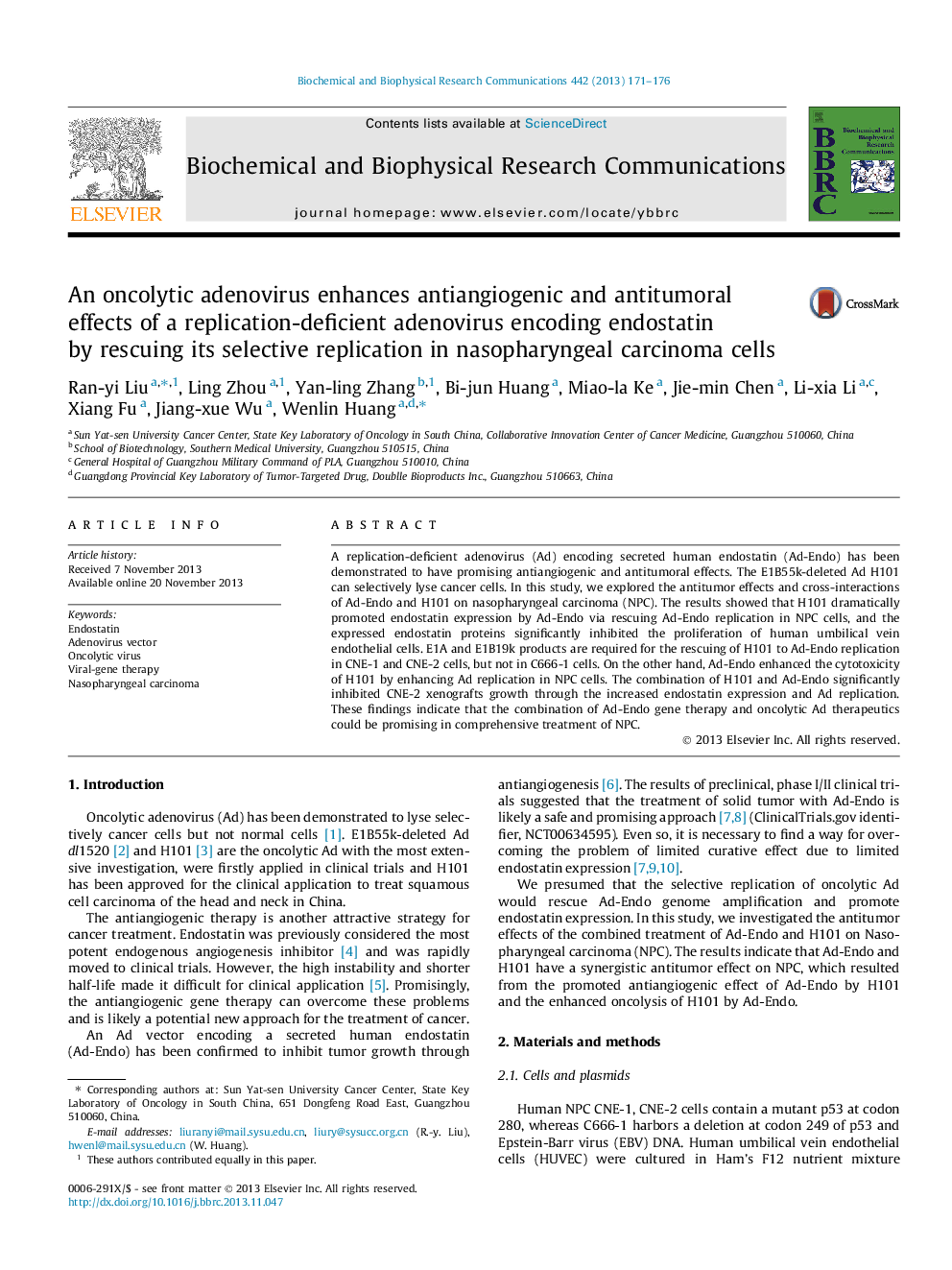| Article ID | Journal | Published Year | Pages | File Type |
|---|---|---|---|---|
| 8297324 | Biochemical and Biophysical Research Communications | 2013 | 6 Pages |
Abstract
A replication-deficient adenovirus (Ad) encoding secreted human endostatin (Ad-Endo) has been demonstrated to have promising antiangiogenic and antitumoral effects. The E1B55k-deleted Ad H101 can selectively lyse cancer cells. In this study, we explored the antitumor effects and cross-interactions of Ad-Endo and H101 on nasopharyngeal carcinoma (NPC). The results showed that H101 dramatically promoted endostatin expression by Ad-Endo via rescuing Ad-Endo replication in NPC cells, and the expressed endostatin proteins significantly inhibited the proliferation of human umbilical vein endothelial cells. E1A and E1B19k products are required for the rescuing of H101 to Ad-Endo replication in CNE-1 and CNE-2 cells, but not in C666-1 cells. On the other hand, Ad-Endo enhanced the cytotoxicity of H101 by enhancing Ad replication in NPC cells. The combination of H101 and Ad-Endo significantly inhibited CNE-2 xenografts growth through the increased endostatin expression and Ad replication. These findings indicate that the combination of Ad-Endo gene therapy and oncolytic Ad therapeutics could be promising in comprehensive treatment of NPC.
Related Topics
Life Sciences
Biochemistry, Genetics and Molecular Biology
Biochemistry
Authors
Ran-yi Liu, Ling Zhou, Yan-ling Zhang, Bi-jun Huang, Miao-la Ke, Jie-min Chen, Li-xia Li, Xiang Fu, Jiang-xue Wu, Wenlin Huang,
